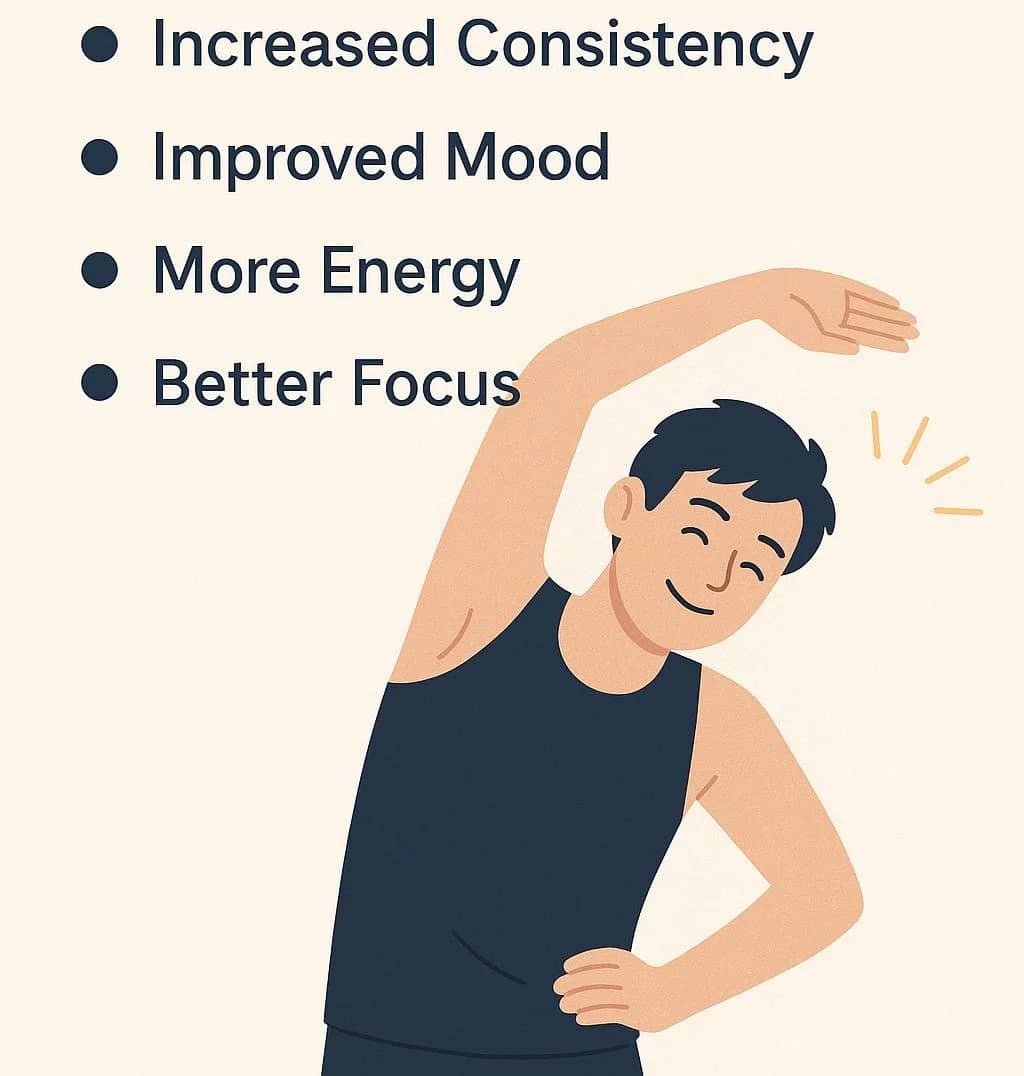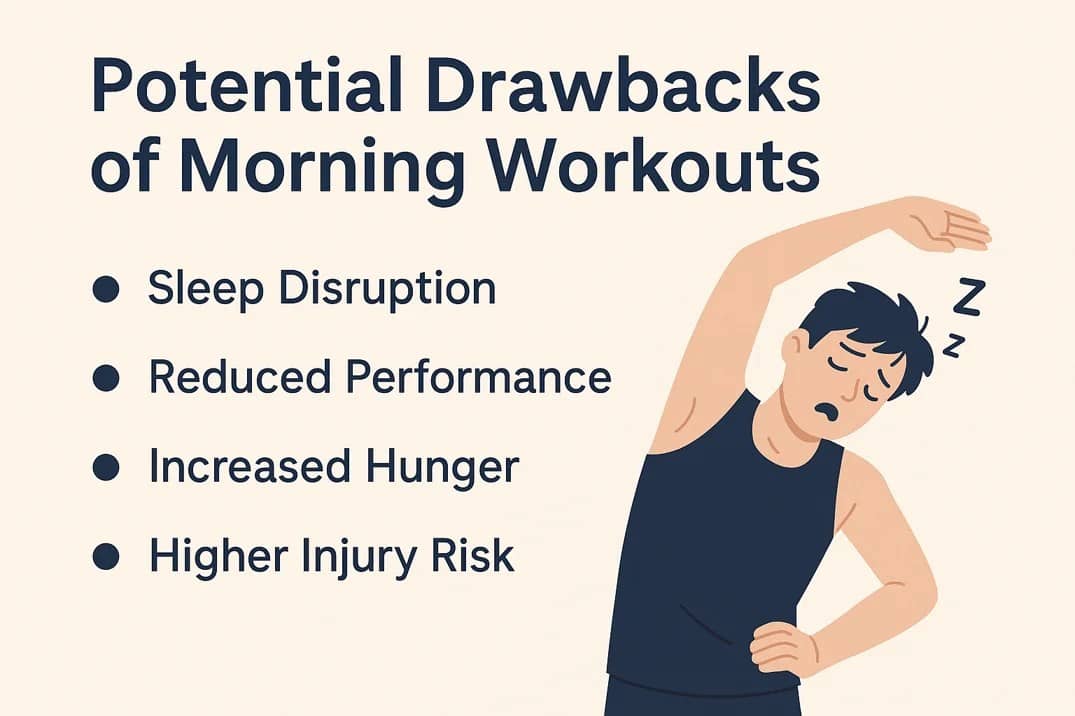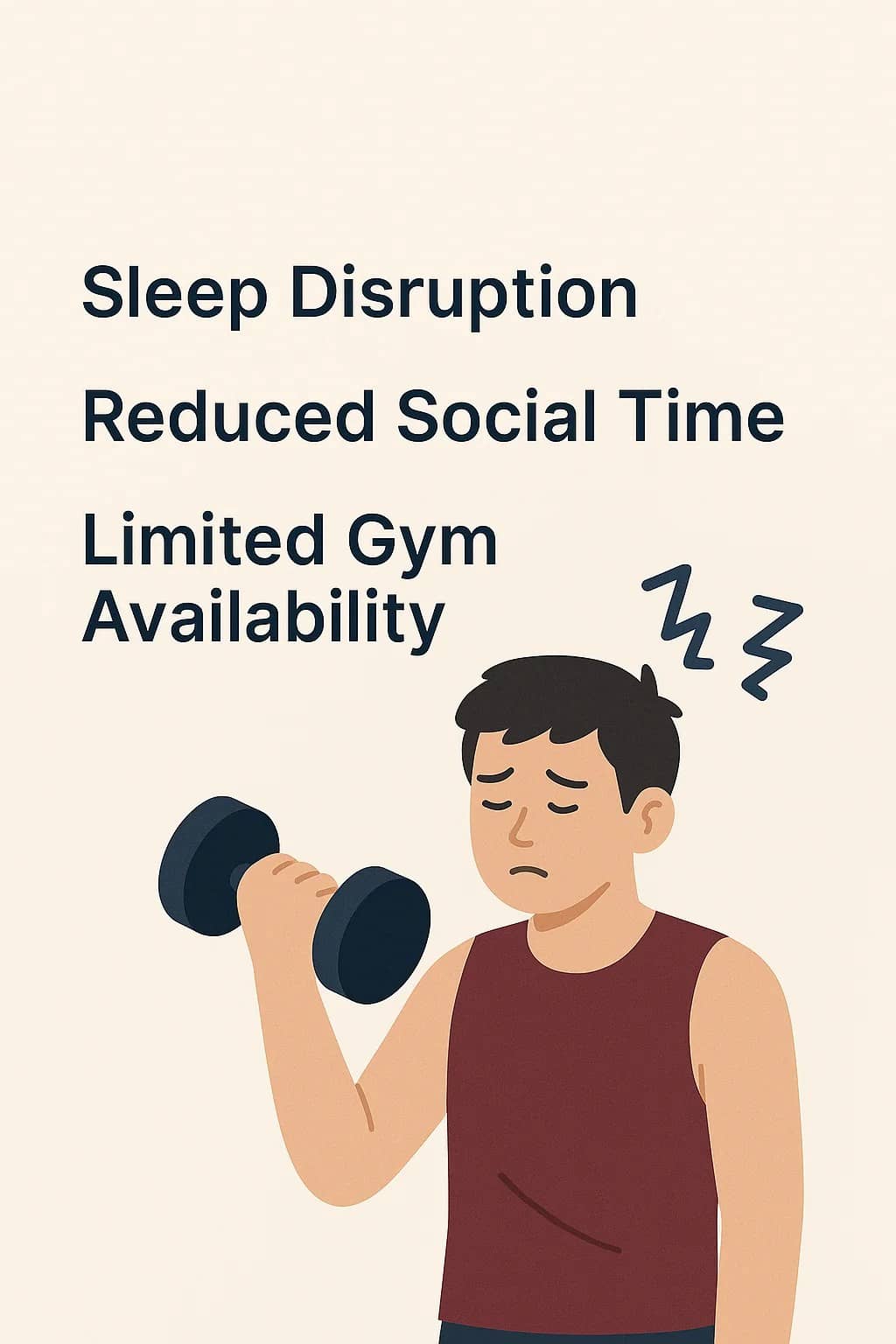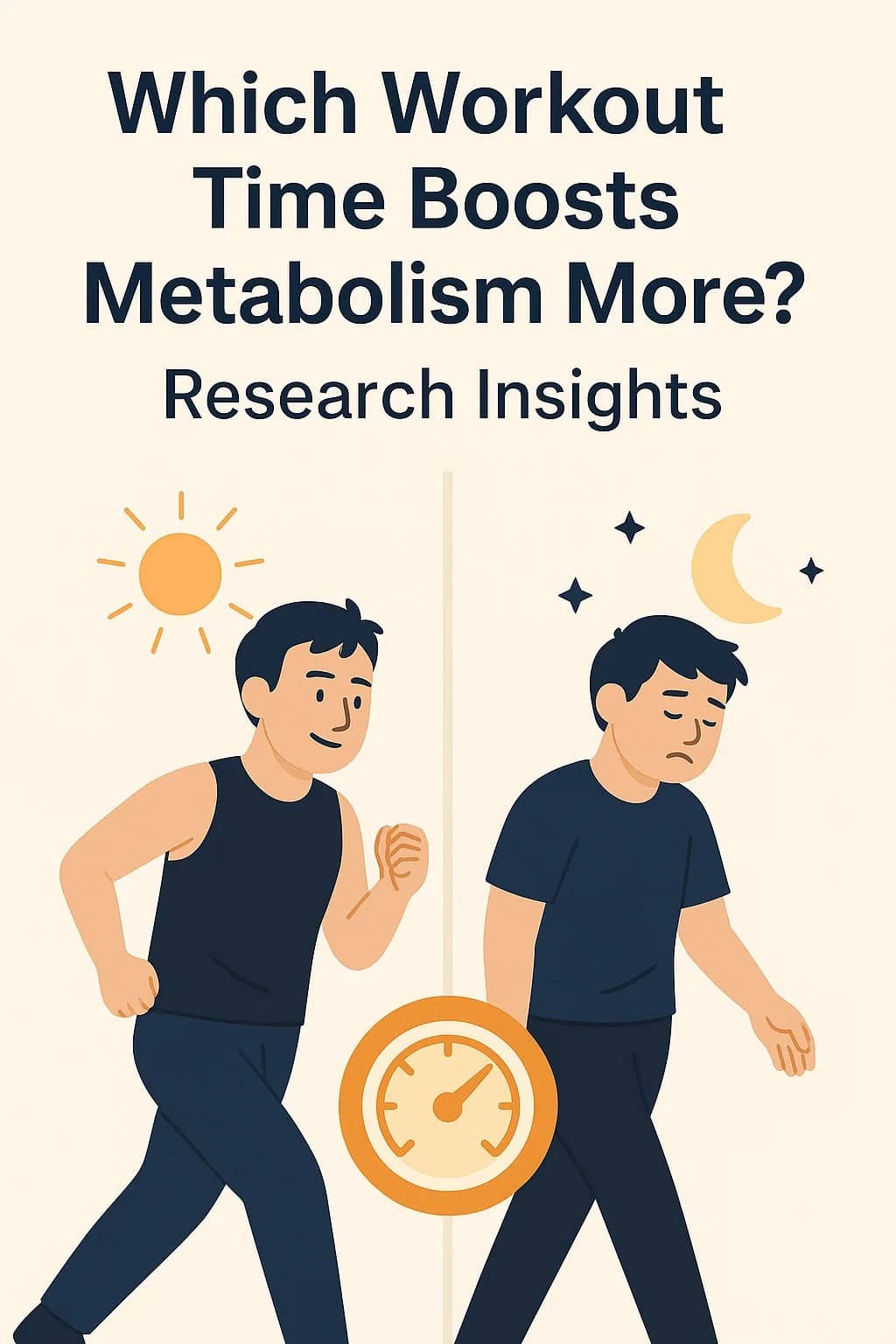
Introduction: Best Time to Exercise
Best Time to Exercise: Metabolism refers to the complex set of biochemical processes. They occur within the body to convert food into usable energy. This energy is vital not only for maintaining essential bodily functions but also for powering physical activities. The speed at which metabolism operates can have a significant impact on weight management and overall fitness. A faster metabolic rate often means that the body is better at burning calories. This makes it easier to achieve weight loss and fitness goals. Therefore, understanding how exercise enhances metabolism is crucial when determining effective training times.
Exercise plays a vital role in increasing energy expenditure. During physical activity, and for several hours afterward, the body burns more calories, a phenomenon known as the afterburn effect. This extended calorie burn contributes to an elevated metabolic rate. Different exercise styles, such as high-intensity interval training (HIIT) and resistance training, elicit various metabolic responses. These responses impact the effectiveness of morning versus evening workouts.
Numerous factors like age, gender, body composition, and hormone levels influence an individual’s metabolic rate. Alongside these internal factors, exercise timing can also be critical. Morning workouts can invigorate the metabolism for the entire day. In contrast, evening sessions might be more suitable for individuals with fluctuating energy patterns. Finding the right time to exercise is essential for optimizing fitness journeys. As we explore further, it’s important to examine how each workout time affects metabolism and fitness outcomes.
Understanding the Benefits of Morning Workouts

Beginning the day with a workout offers a range of benefits that stretch beyond improving physical health. Morning workouts have gained popularity because they can increase energy levels. They also boost mood and help build long-term exercise habits. Engaging in physical activity early in the morning raises the metabolic rate. It allows the body to burn more calories throughout the day.
One significant benefit of morning workouts is the immediate rise in energy levels. Post-workout, individuals often experience a surge of endorphins, which are chemicals in the brain that promote happiness and well-being. This natural boost in hormones not only uplifts the mood. It also improves mental focus and clarity. This sets a positive tone for the rest of the day.
Additionally, morning workouts encourage better consistency. Exercising before the day’s distractions begin makes it easier to stick to a routine. Establishing a morning workout schedule promotes accountability. It strengthens the commitment to fitness goals. This fosters a disciplined and healthy lifestyle over time.
Morning physical activity also benefits sleep quality. People who work out early tend to sleep better at night. The body experiences healthy fatigue. It maintains a balanced sleep-wake cycle. Good sleep, in turn, supports metabolic health and overall well-being.
In conclusion, morning workouts offer numerous advantages. They provide elevated energy levels and enhanced mood. They also lead to improved focus and stronger exercise routines. All these benefits contribute positively to an individual’s health and fitness journey.
Potential Drawbacks of Morning Workouts: Best Time to Exercise

Despite their benefits, morning workouts come with certain drawbacks that can impact performance and enjoyment. One major concern is reduced performance. Research suggests that the body’s circadian rhythm affects muscle strength, endurance, and alertness in the early hours. This makes it harder to perform at full capacity during morning workouts.
Another disadvantage is muscle stiffness. After a full night’s rest, the body’s muscles and joints can feel tight. Jumping into intense exercise without proper preparation can increase the risk of injury or discomfort. Stiffness can also decrease the overall efficiency of the workout and potentially discourage consistency.
Scheduling is another challenge. Not everyone can easily fit a workout into their busy morning routines. Preparing for work, family duties, or other obligations can make morning exercise feel rushed. This stress diminishes the quality of the workout. Additionally, unexpected events can disrupt a morning fitness routine, leading to inconsistency.
By acknowledging these potential drawbacks, individuals can make informed decisions about whether morning workouts suit their bodies, preferences, and lifestyles. Ultimately, choosing a workout time that aligns with personal rhythms is crucial for achieving lasting fitness success.
Exploring the Advantages of Evening Workouts: Best Time to Exercise
Evening workouts come with their own set of unique benefits that can greatly enhance an individual’s fitness experience. One of the main advantages is better strength performance. Studies show that body temperature peaks in the late afternoon and early evening. This leads to improved muscle function, endurance, and physical output.
Another notable benefit is greater flexibility. As the day progresses, the body’s muscles warm up naturally. This reduces the risk of injuries. It also enhances the effectiveness of stretching routines. This natural flexibility makes evening workouts feel more comfortable and productive.
Evening exercise sessions also offer social opportunities. Gyms tend to be busier during these hours, creating a lively, motivating atmosphere. Training with friends builds a sense of community. Joining group classes fosters accountability. These activities can increase commitment to fitness goals.
Overall, evening workouts offer advantages like enhanced performance. They also provide greater flexibility and stronger social support. These features make them an appealing option for many fitness enthusiasts.
Drawbacks of Evening Workouts

While evening workouts may suit many lifestyles, they also come with potential downsides. One major issue is their impact on sleep quality. High-intensity exercise late in the evening can stimulate the body too much, making it harder to relax and fall asleep. Elevated heart rate and adrenaline levels after exercise can interfere with the natural sleep cycle, leading to restlessness or insomnia.
Post-workout cravings are another concern. Intense evening sessions often leave individuals feeling extremely hungry, which can lead to impulsive eating, especially of unhealthy, high-calorie foods. This undermines the calorie-burning benefits of exercise and may hinder weight management efforts.
Furthermore, evening workouts can clash with social commitments. Family dinners, outings, or evening responsibilities may conflict with workout schedules, making consistency difficult. After a tiring day, fatigue may also reduce the motivation to exercise.
Balancing these challenges with the benefits of evening workouts is essential. This helps decide whether nighttime training aligns with one’s overall fitness objectives.
Comparative Analysis: Morning vs Evening Workouts
When it comes to optimizing metabolism through exercise, timing plays an important role. Both morning and evening workouts offer distinctive benefits and drawbacks, influencing performance, consistency, and long-term results.
Morning workouts are ideal for jumpstarting the metabolic rate early in the day. They enhance energy levels, boost mood, and make it easier to maintain consistency, as morning hours usually involve fewer distractions. Studies indicate that individuals who work out in the morning show greater long-term commitment to their fitness programs. However, morning sessions may be challenging for non-morning people, requiring a disciplined routine and preparation.
On the other hand, evening workouts tend to offer better physical performance. Higher body temperatures later in the day promote stronger muscle performance and flexibility. Evening exercise can serve as a great way to unwind after a stressful day. Nonetheless, risks like disrupted sleep and increased evening fatigue must be considered.
Ultimately, both timings have their own advantages and limitations. Choosing the ideal time depends on personal schedules, energy patterns, and fitness goals.
Here’s a quick comparison:
| Aspect | Morning Workouts | Evening Workouts |
|---|---|---|
| Energy Boost | Kickstarts the day with energy | Body temperature peak improves output |
| Consistency | Fewer distractions, easier routine | Risk of social/fatigue-related interruptions |
| Sleep Impact | Generally positive | May disrupt sleep if too close to bedtime |
Which Workout Time Boosts Metabolism More? Research Insights

The relationship between workout timing and metabolism has drawn increasing scientific interest. Various studies have examined whether morning or evening exercise offers a better metabolic boost.
One prominent study published in “Obesity” showed that morning exercisers had higher levels of cortisol after workouts. They also had increased testosterone levels. Both of these hormones are closely linked with fat burning and metabolic activity. This indicates a possible advantage for morning training when it comes to boosting metabolism.
Another research project in “The Journal of Physical Activity and Health” evaluated the oxygen consumption rates post-exercise. Results showed that morning exercisers had greater post-exercise oxygen consumption. This is a strong marker of elevated metabolic rate compared to evening exercisers.
Additionally, a broader meta-analysis reviewing several studies suggested this finding. Evening workouts lead to better performance in strength and endurance. However, morning workouts result in greater consistency and enhanced metabolic efficiency over the long term.
In summary, evidence shows that morning workouts offer a slight edge for improving metabolism. Both timings have substantial benefits depending on personal preferences.
How to Choose the Best Workout Time for You
Selecting the right workout timing is crucial for maximizing both fitness results and metabolic gains. To determine the best workout schedule, several factors must be considered.
First, understand your personal energy rhythms. If you naturally feel more energetic in the morning, take advantage of that and schedule workouts early. Conversely, if your energy peaks later, evening sessions may be more suitable for achieving optimal performance.
Second, fit your workouts into your daily routine seamlessly. Pick a time when you’re least likely to face interruptions from work, family, or social obligations. A consistent schedule is key to establishing a lifelong exercise habit.
Third, listen to your body’s feedback. Monitor how you feel during and after workouts at different times. You might notice that you recover faster or perform better depending on when you exercise.
Lastly, align your workout timing with your fitness goals. Consistency and enjoyment are more important than strictly sticking to a particular time. Whether you aim for weight loss, muscle gain, or increased endurance, focus on these aspects.
Experimenting with different timings and observing results will ultimately help you discover the most sustainable workout routine for you.
Conclusion and Call to Action: Best Time to Exercise
Morning and evening workouts both impact metabolism. Each offers significant advantages. These are tailored to individual lifestyles.
Evening workouts, however, offer superior performance outcomes, greater flexibility, and a way to release the day’s stress. For people whose energy levels peak later in the day, evening exercise may deliver better results.
The best time to exercise ultimately depends on your personal rhythm, schedule, and preferences. We encourage readers to reflect on their own experiences. Test different workout timings. Share insights about how it influences their fitness journey and metabolic health. Your shared experiences can inspire and help others on the path to better health and wellness.
Reference Article:
Enhancing the metabolic benefits of exercise: Is timing the key?
Disclaimer:
This content is for informational purposes only and does not constitute medical advice. Please consult a healthcare or fitness professional before making changes to your exercise routine.
Discover more from I-PICKS
Subscribe to get the latest posts sent to your email.

